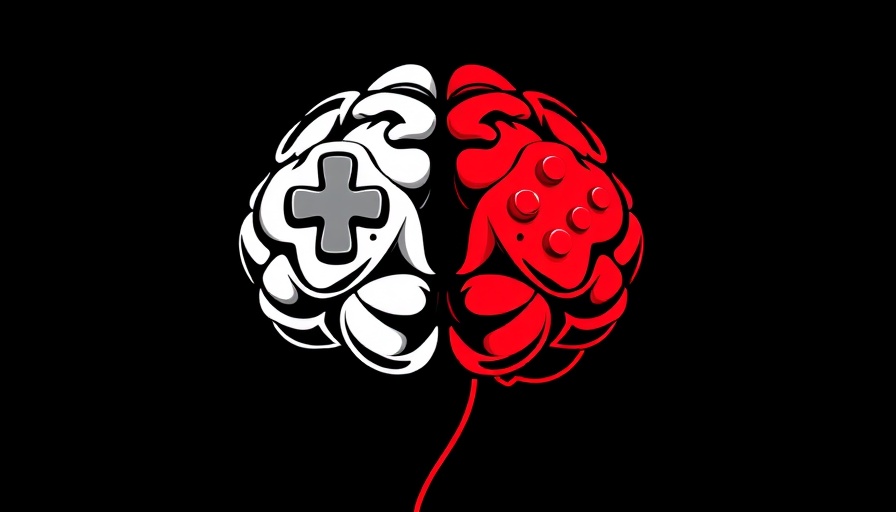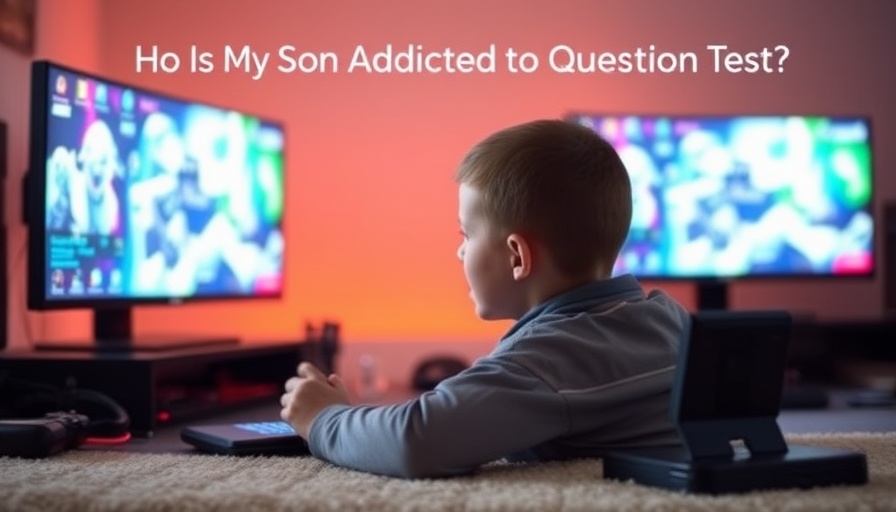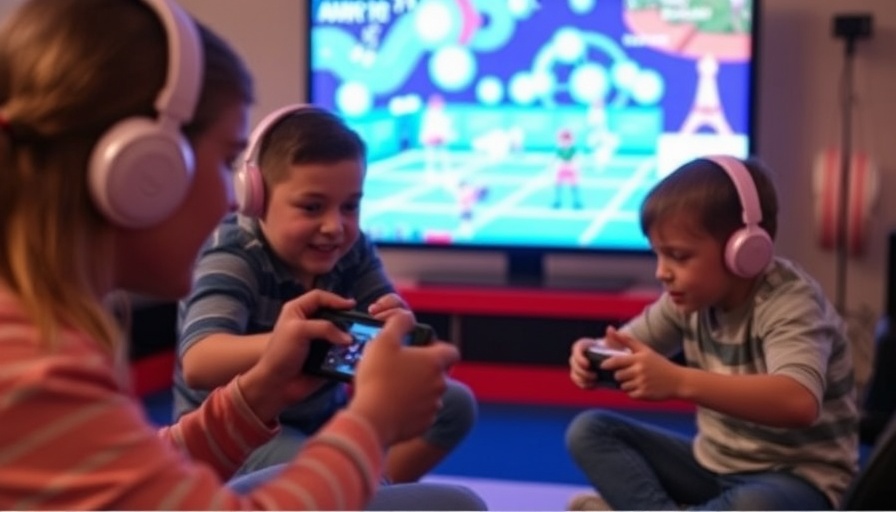
Why Are Video Games So Compelling for Teens?
When we think about video games, it’s easy to dismiss them as mere entertainment. Yet for teenagers, the impact runs far deeper. Video games trigger significant neurological responses that can create a compelling and sometimes addictive experience. The very design of these games captivates their attention, heightening excitement through rewards and achievements that are foundational to their brain's dopamine pathways. For parents, it can be perplexing to understand why a teen would play for hours, seemingly oblivious to the world around them. This disconnect often leads to challenges in managing their gaming habits and mental health.
How Gaming Affects Brain Development
Research indicates that intense gaming can alter brain structures, particularly in areas associated with impulse control, focus, and emotional regulation. Teens’ brains are in a critical developmental phase, and excessive gaming can lead to a decline in academic performance and social interactions. Understanding this, and acknowledging that gaming alters not just behavior but brain chemistry, can help parents approach the issue more effectively. Encouraging offline activities and time away from screens becomes essential for a balanced development.
Signs of Video Game Addiction
Recognizing the signs of potential gaming addiction is crucial for intervention. If your teen exhibits behaviors such as prioritizing gaming over homework, neglecting friendships, or expressing anxiety when gaming is not an option, it might be time for a conversation. Parents should approach such discussions without judgment, focusing instead on compassion and understanding.
Open Communication: Your Best Tool
Facilitating open communication with your teen about gaming can foster connections. Instead of condemning gaming as a waste of time, inquire about their experiences and feelings within these virtual worlds. This not only helps in nurturing trust but also allows parents to provide guidance on moderation and healthier gameplay habits.
Healthy Alternatives: Prioritizing Device-Free Activities
One proactive approach to combatting excessive gaming is introducing teens to device-free activities. Consider establishing ‘screen-free’ zones or times within the home, cultivating an environment that champions outdoor adventures, hobbies, or family game nights. This strategy can encourage stronger social bonds and promote a sense of balance.
The Role of Setting Boundaries
Effective boundaries can help create a healthier gaming experience. Set reasonable limits on the amount of time spent gaming during weekdays, balancing it with academic obligations and family time. Tools and apps designed to monitor usage can also assist in teaching responsibility and self-regulation when it comes to screen time.
Seeking Help: Professional Resources
If your concerns deepen, it’s essential to consider seeking help from professionals who specialize in video game addiction. Programs and resources are available that provide structured support to both teens and families. This could be in the form of counseling, support groups, or dedicated therapy focused on managing gaming habits.
Encouragement and Understanding
Lastly, ongoing encouragement is critical. Celebrate small achievements and encourage your teen to share their wins, even if they’re not related to gaming. Celebrate their offline interests and support exploration in areas they may not have previously considered. Ultimately, cultivating a supportive environment allows teens to transition from gaming without feeling abandoned.
As a parent, creating a balanced approach to gaming can significantly benefit your teen’s mental health, social interactions, and overall well-being. Embrace the challenge with an open heart, knowing that, together, you can navigate the often-turbulent waters of teenage gaming.
 Add Row
Add Row  Add
Add 




Write A Comment